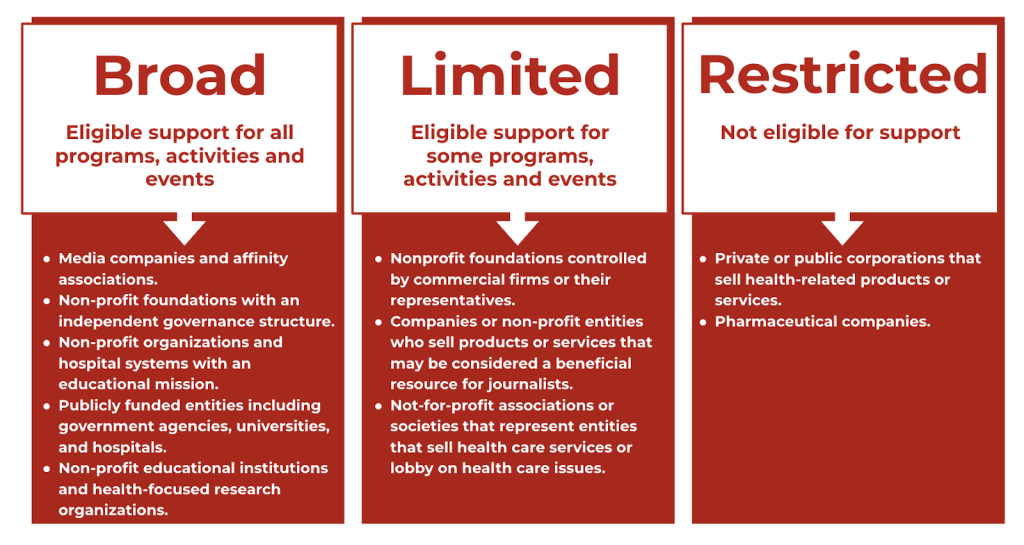The Association of Health Care Journalists (AHCJ) and the Center for Excellence in Health Care Journalism (CEHCJ) are committed to the values of transparency, editorial independence and sustainability in all of our fundraising efforts.
We seek partners whose goals align with our mission to improve public understanding of health-related issues by advancing the quality, accuracy and accessibility of health care journalism. We accept funding from nonprofit entities who demonstrate that their governance structure is independent of influence that would present potential conflicts of interests with our work.
Our funding partners are often thought-leaders on important health-related issues. While we create opportunities for our funders and sponsors to share their expertise and knowledge with our programming staff, we maintain full editorial control of content and educational programming. Our news judgements are our own.
Programming decisions are made by prioritizing the needs of our members and program participants. Conversations with funders may inform some components of our programming but only after a thorough review of relevancy, accuracy and value for our members and program participants.
We use the AHCJ statement of principles as a guide for our decision-making process on whom to partner with on our programs and activities.
Our fundraising policies and practices are informed by the American Press Institute’s Guiding principles for funders of nonprofit media and the Institute for Nonprofit News’ editorial independence policy. They are routinely reviewed by the AHCJ finance committee and subject to change.
Our values
- Transparency: We practice transparency by identifying the supporting partner(s) on all programs and activities. We make our financial reviews and audits, revenue sources and IRS Form 990s available to the public.
- Editorial Independence: AHCJ and CEHCJ have final say on content and educational programming on all of our platforms. We adhere to the practices adopted by the Institute for Nonprofit News.
- Sustainability: We are committed to providing high quality programs and activities that adapt with the shifting journalism landscape. We seek to build lasting partnerships with our philanthropic partners through open communication, reliability, consistency and excellence.
Partner categories
